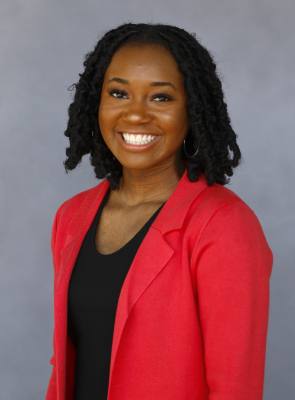Modawell, who has type O-negative blood, donated a double portion of red cells at Carter BloodCare’s Frisco location. He has been a regular donor for about 35 years.
“I know the value of what blood does, but when I found out that I was the universal donor, I realized I could help save more lives,” Modawell said.
In June, the American Red Cross issued a news release about a nationwide blood shortage. The nonprofit called the shortage “severe,” and implored people with O blood types to donate.
Type O-positive is the most transfused because any recipient with a positive blood type can accept it. In emergency situations, medical staff reach for type O-negative because it can go to anyone.
The coronavirus pandemic kept donors at home, and it is unclear how many regular donors were sick, said Linda Goelzer, Carter BloodCare’s director of public relations. But even for those who felt comfortable enough to donate, schools, churches and most offices were closed, eliminating the possibility of donating at a drive.
Those were problems that donation centers across the country faced. But Texas’ shortage was exacerbated by the February storm that left many without power for days.
Although the pandemic drastically slowed the donor pace, the storm was the only time Carter BloodCare—which has over 20 locations in North Texas—had to close entirely. Loss of electricity, water or both led some centers to close for five days. Others had to close for a week.
“The blood supply really cannot go without any donations for more than a day,” Goelzer said. “Given the fact that we were already short, it put us so far behind.”
Chief Medical Officer at Medical City McKinney Dr. Raylene Platel expressed confidence in the hospital's ability to preserve blood products to meet surgery and trauma needs but stressed the importance of blood donations.
"It is vital that our community continue to give blood, as one donation can save multiple lives," Platel said in a statement.
Baylor Scott & White-Frisco has been able to keep enough blood to match the pace of the procedures on schedule, according to Dr. Alexandra Beckett, pathologist and medical director of BSW-Frisco’s clinical laboratory.
The hospital typically stocks about 40 units of red blood cells, which has not changed during the pandemic. However, Beckett encouraged people to donate platelets, which have a short shelf life—five days compared to about 40 for whole blood.
Almost half of all platelet donations are given to patients undergoing cancer treatments, but they are the hardest donors to acquire because the process takes between two and three hours, said Derrick Jefferson, Carter Bloodcare’s operations coordinator.
Centers like Carter BloodCare are struggling to keep reserves because whatever they collect is shipped to hospitals in about a day. Reserves are necessary to respond to maternal hemorrhaging, emergency surgeries and other crises.
“Do for others what you’d want done for you,” Modawell said. “There’s going to be a day when you’re probably going to need blood, and you’re going to hope and pray that somebody’s [donated].”
Those interested in donating can visit www.carterbloodcare.org to find their closest donor center, upcoming blood drives and other donation information.
UPCOMING BLOOD DRIVES
- July 16 at Battle of the Bridges. 8601 Gary Burns Drive, Frisco. 9 a.m.-5 p.m.
- July 17 at Battle of the Bridges. 8601 Gary Burns Drive, Frisco. 9 a.m.-3 p.m.
- July 24 at Karya Siddhi Hanuman Temple. 12030 Independence Parkway, Frisco. 10 a.m.-4p.m.
- July 29 at Ebby Halliday Realtors. 6051 West Virginia Parkway, Suite 100, McKinney. 10 a.m.-3 p.m.
- July 30 at Stonebriar Centre. 2601 Preston Road, Frisco. 11 a.m.-6 p.m.





